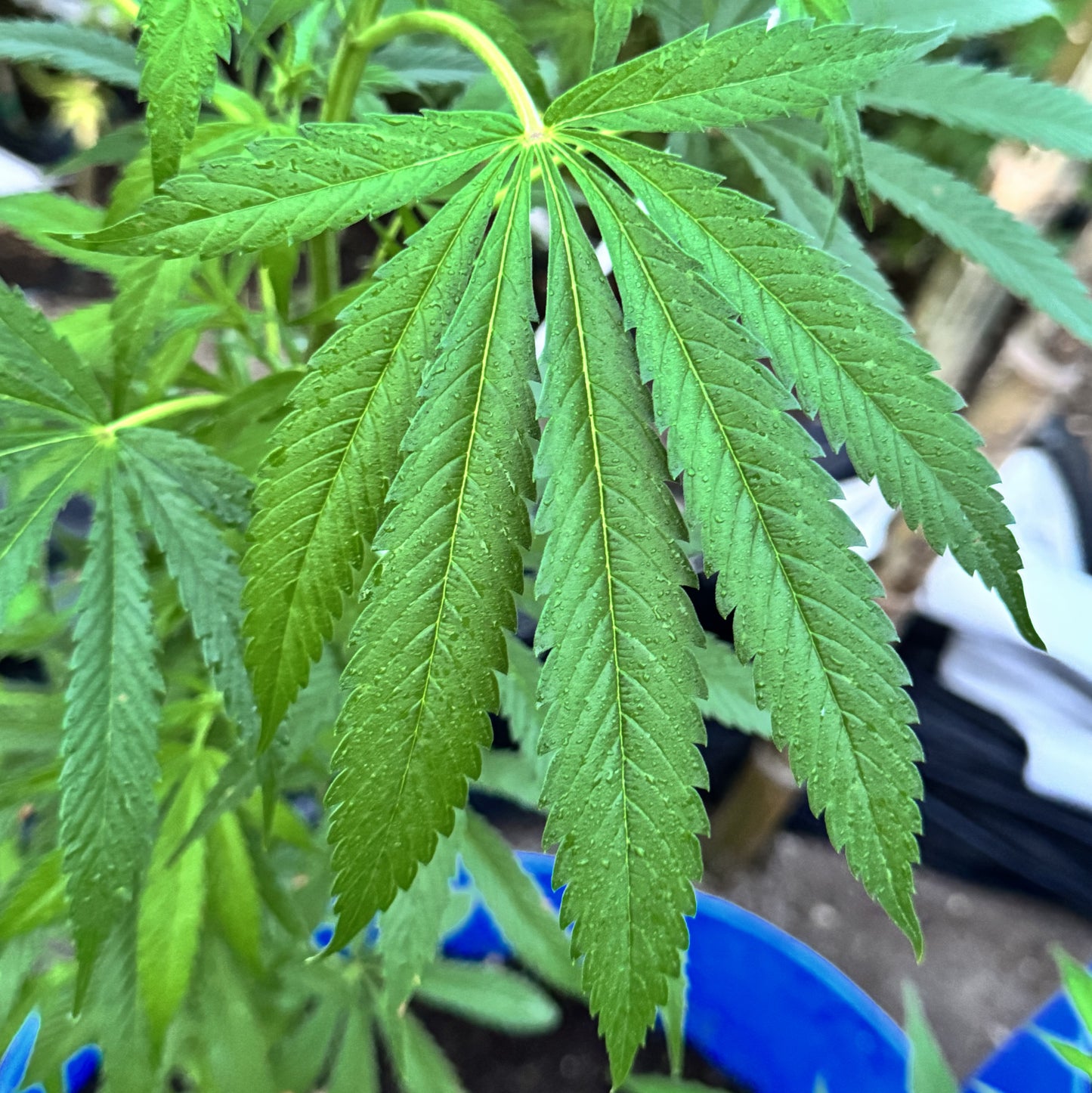JIHADI KUSH HASHPLANT
JIHADI KUSH HASHPLANT
Pakistani Norther Region #1× Nepalese
Flowering: ±56 Days (8 Weeks)
Stretch: Low to Moderate
Plant Size: Compact, heavily branched Kush form
Yield: Large for size; up to 200g per 120cm plant
Difficulty: Easy–Intermediate (very mold resistant)
Aroma: Fuel • Earthy Spice • Skunk • Sweet Resin
THC / Cannabinoids: 22–25% THC | <2% CBD
Summary / Suitability
Jihadi Kush is a compact, fast-flowering Kush hybrid bred for high performance under natural sunlight and humid outdoor conditions. It produces dense, resin-heavy buds on short, thick plants that maintain excellent airflow despite their tight structure. With its low stretch, strong lateral branching, and high flower density, it’s ideal for outdoor or greenhouse growers seeking true hash-plant resin quality with dependable yields and mold resistance.
Genetic Background
Originally bred by Charles Reeferman Scott in British Columbia in the early 2000s, Jihadi Kush was created by crossing a Northern Pakistani NR1 female with an award-winning Nepalese male, both from traditional hash-producing regions. The Pakistani mother contributes its unmistakable Kush density, earthy-fuel terpene base, and compact frame, while the Nepalese father adds resin liquidity, floral spice, and resilience at altitude.
The Lost Pheno 2024 Colombian selection was made from 100 plants grown at high elevation in Colombia. The chosen phenotypes retained the Pakistani structure and speed but showed improved vigor, stronger branching, and a balanced hybrid profile adapted to tropical conditions. This selection maintains the landrace authenticity of the original line while improving its performance under Colombian and equatorial climates.
Plant Characteristics
Jihadi Kush forms thick, self-supporting stems with dense internodes and broad, deeply serrated leaves. Plants remain low-profile and wide, rarely exceeding 1.2 m outdoors but producing heavy, uniform colas on every branch. The foliage stays dark green throughout flowering, and resin formation begins early—often visible by week three. Mature flowers are tightly packed, coated in greasy resin, and emit a strong, skunky-fuel scent even before harvest. The plant structure is rugged, capable of enduring strong rain and wind, with natural resistance to mold and pests.
Flower & Aroma Profile
The flowers are compact and hard, with a rich olive-green color and occasional purple hues inherited from the Nepalese side. Trichomes are large and bulbous, giving a frosted appearance that extends onto the sugar leaves. The aroma combines pungent fuel, spicy earth, and skunk with undertones of resin and incense. Once cured, the bouquet deepens into notes of sandalwood, leather, and burnt sugar. The smoke is thick and oily, with a sweet-spice finish typical of traditional hash cultivars.
Growing Tips (Indoor & Outdoor)
Indoor: Jihadi Kush adapts easily to small spaces and performs well in multi-top or SCROG systems. It prefers moderate feeding and strong airflow. Flowering completes in 7–8 weeks with minimal stretch and heavy resin production.
Outdoor / Greenhouse: Excels in humid or tropical environments. Its dense structure and landrace heritage make it naturally resistant to mold and disease. Performs best in well-draining organic soil with full sunlight and ample root space.
Effects & Potency
Jihadi Kush produces a potent, body-centered effect that is deeply relaxing yet mentally calm and clear. The high begins with a light euphoric lift before settling into a warm, grounded sensation—ideal for evening use or meditative focus. Its heavy resin content and balanced cannabinoids create a smooth, hash-like effect that lasts for hours without heavy sedation.
Cultural Significance
Jihadi Kush’s parental lines come from two of Asia’s most storied hashish regions: the northern tribal valleys of Pakistan and the highland terraces of Nepal. For centuries, both regions have cultivated landrace cannabis specifically for charas and hand-rubbed hashish production. The dry mountain climate of Pakistan’s Hindu Kush range produces dense, oily resin ideal for sieving, while the moist Himalayan air of Nepal yields aromatic, pliable hash known for its floral sweetness. Jihadi Kush carries forward this lineage, a true expression of the hash-plant tradition that fueled centuries of trade, ritual use, and craftsmanship across the Silk Road.





















